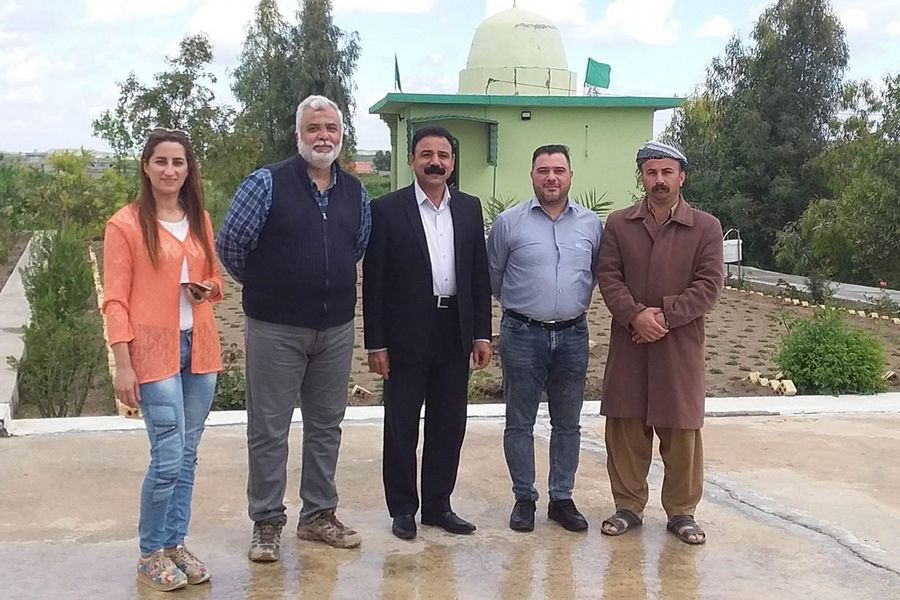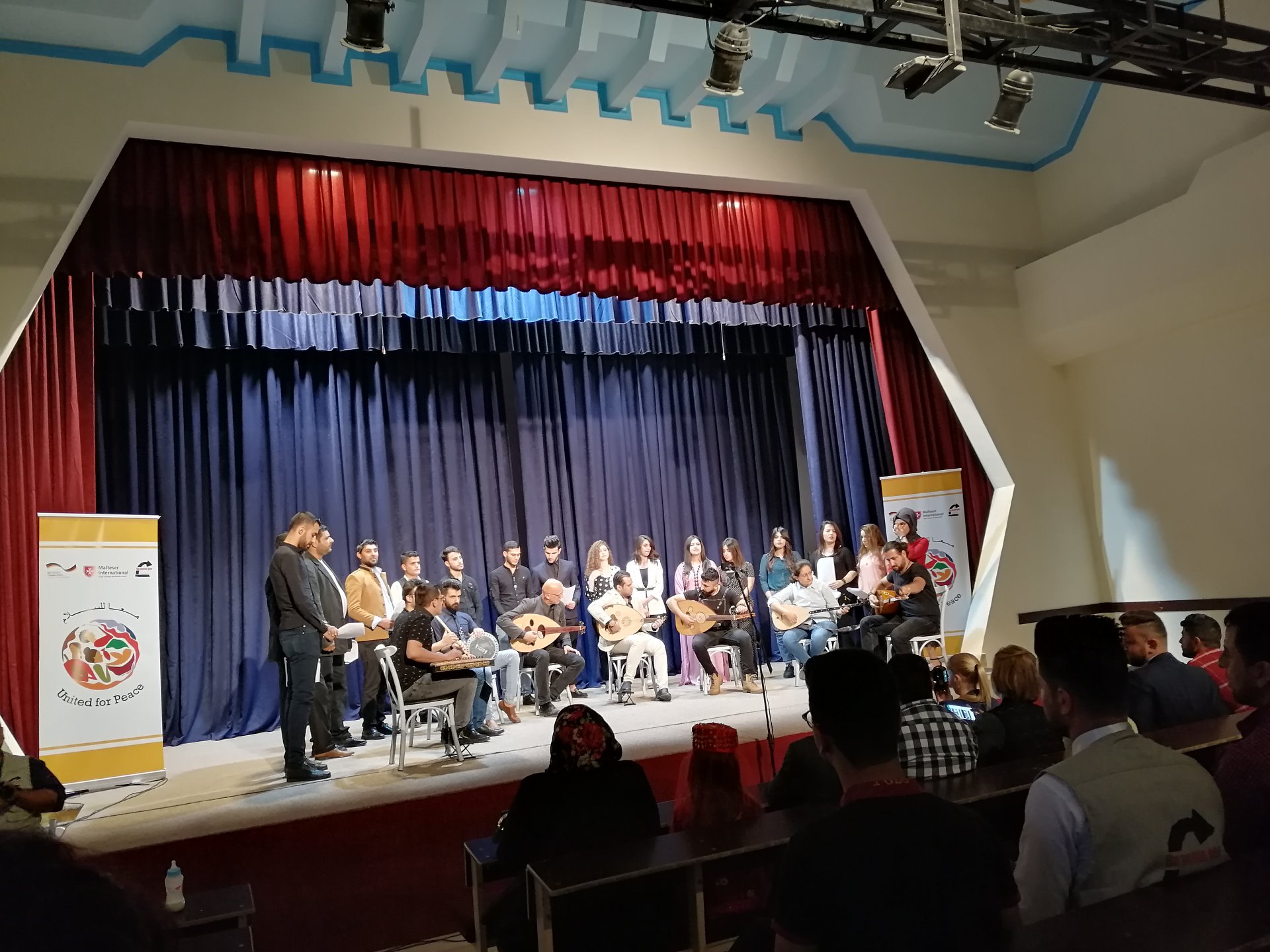Tharaa A. Simaan, Malteser International’s Monitoring and Evaluation Assistant for the Ninewa Return Program in Iraq- a project run by the Order of Malta’s international relief agency – explains the importance of social cohesion, the activities supported by Malteser International and the impact on communities in the Nineveh Plains.
Tell us about yourself and your work at Malteser International
I am from Bakhdida, also known as Qaraqosh, in the Nineveh Plains of northern Iraq. I work for Malteser International’s Ninewa Return Program as a Monitoring and Evaluation Assistant. I am particularly involved in the program’s Social Cohesion component. Our office is located in Erbil but my work is mostly carried out in the field, as I spend my time travelling to different areas in the Nineveh Plains, monitoring our partners’ activities. I have been working for Malteser International for 10 months now.
What exactly do we mean when we talk about Social Cohesion and why is it a component of the Ninewa Return Program?
The Nineveh Plains is home to a variety of groups from diverse religions and ethnicities, most of whom were displaced when the area was taken by ISIS. In the Ninewa Return Program, we are working to encourage the return of displaced families, through rebuilding houses and schools, and enabling families to earn their livelihoods. The final pillar of the program is “social cohesion”, which we understand as supporting the things that reinforce trust between or within communities. While rehabilitating a community is important, if we don’t actively work to support peaceful coexistence, this can be a reason for families not to return to their homes.
In conflict situations where religious or ethnic identity is politically abused as a divider, what role can faith-based organizations like Malteser International play to contribute to sustainable peace?
The communities we work with in the Nineveh Plains range from Sunni and Shia Muslims of Arab, Shabak, Turkmen and Kurdish ethnicities to Yezidi, Christians and Kakais. Our values at Malteser International are rooted in our Christian faith and the humanitarian principles, with compassion, humanity, and impartiality forming the foundations of our work. This means working selflessly with members of different communities regardless of their religion or ethnic background. Our message to them is that being different does not mean you are enemies. Unity in diversity can break down prejudices that have been spread by hate speeches.
What concrete activities is Malteser International engaged in to promote social cohesion in the Nineveh Plains?
Malteser International is working with and supporting three partners its efforts to bring about social cohesion, namely Women Rehabilitation Organization (WRO), Peace and Freedom Organization (PFO) and Un Ponte Per (UPP). We are supporting measures such as: construction of youth centers and sport facilities, cultural, sports and leisure activities as well as community radio and music events, to name a few. Our partners also run trainings on peacebuilding, communication skills and problem-solving techniques. There is also engagement with Parent-Teacher-Associations in local schools, and a pairing of social cohesion activities with vocational training and life-skills.
When members of a specific religion are celebrating a special occasion, such as Eid, our partners also organize for other communities to join the celebration as a sign of openness and solidarity.
Is gender justice necessary to achieve social cohesion? What role can women and youth play in conflict prevention and dialogue?
Yes! Within some communities of the Nineveh Plains, it is culturally forbidden for women to engage in activities outside their homes. Our partners are committed to achieving some gender balance within our program, and always strive to ensure equal access to project activities for all genders. This sometimes means carrying out separate activities for men and women in culturally sensitive contexts. We believe women have an equally fundamental role to play in conflict prevention and dialogue as they are mostly responsible for transferring values of tolerance and peace to their children. It is very important that they are empowered to have equal and full participation as active agents in peacebuilding.
What are the advances achieved so far by Malteser International and what are the future challenges?
The communities living in the Nineveh Plains are still traumatized and hurt from years of conflict and will need time to recover. Though reconciliation is still in its early stages, our team can already see change in the way young people think. They are more tolerant and accepting of other opinions. Some communities are starting to allow girls to attend activities that used to be forbidden to them. This may look like a small step, but I believe that our program will create big changes in the communities.
The country’s security situation may be the biggest challenge. If the situation becomes unstable, this will affect our partners’ ability to carry out their work.











